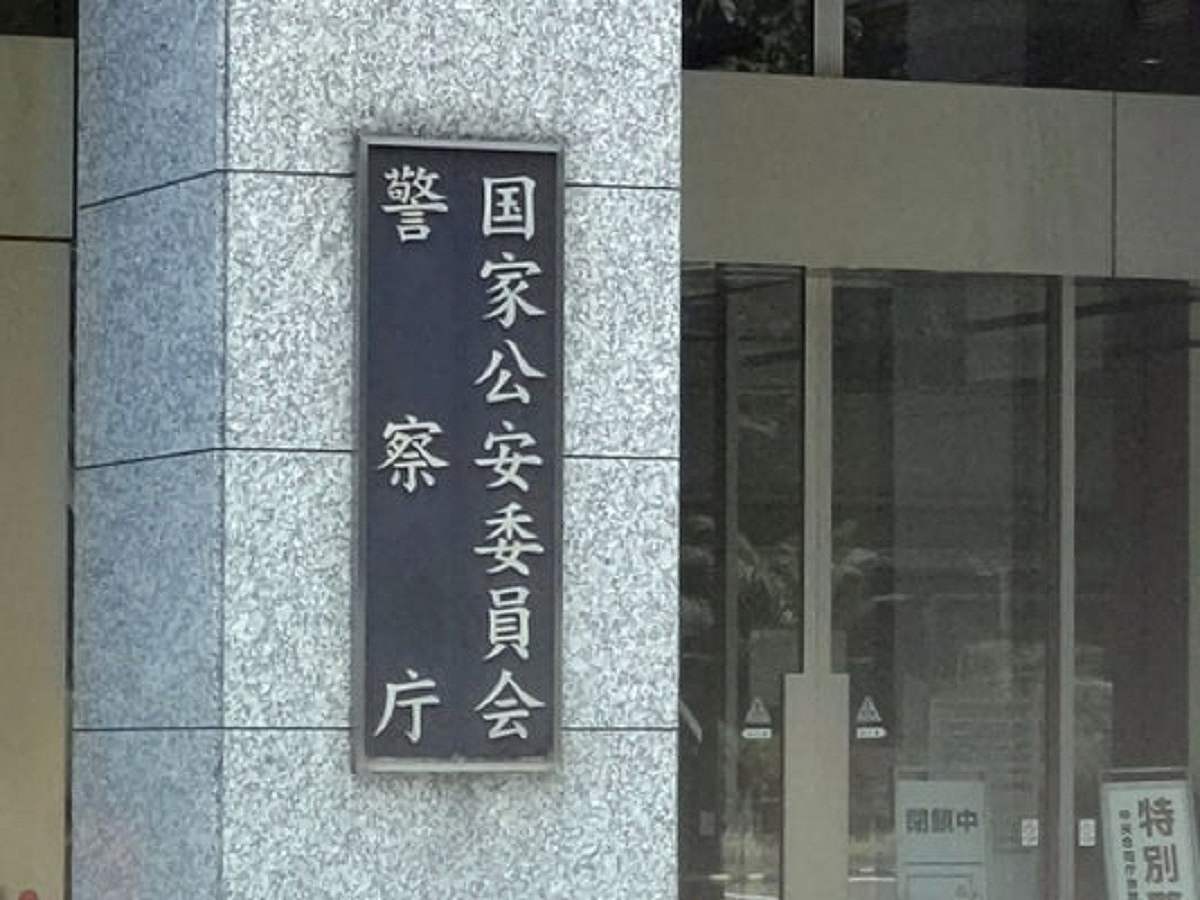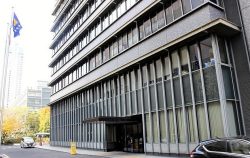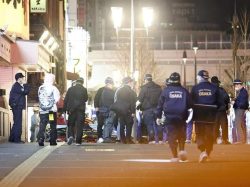Japan Authorities Introduce New Technology to Guard VIPs as Preventing Lone Wolf Attacks Still a Difficult Task

The National Police Agency in Tokyo
20:00 JST, July 9, 2024
Two years have passed since the fatal shooting of former Prime Minister Shinzo Abe during a campaign speech in Nara. Tetsuya Yamagami, 43, was arrested at the scene and has been indicted on five charges including murder.
Some time later, another man was indicted on suspicion of making a homemade gun, inspired by Yamagami’s actions.
“I was disappointed by society,” the man said in a recent interview with The Yomiuri Shimbun. HIs remarks highlight again the difficulty of dealing with radicalized lone offenders who are not connected to any group.
‘I thought I’d be understood’
Seiji Tashiro, 26, a home appliance repair worker in Midori Ward, Chiba, was arrested in April by the Chiba prefectural police on suspicion of making and possessing an iron-pipe gun at home without permission, a violation of the Ordnance Manufacturing Law and other changes. He was indicted in May.
Tashiro answered questions from a Yomiuri Shimbun reporter at the Chiba Minami Police Station, in the presence of a police officer, on June 27.
After his arrest, Yamagami told police that he held a grudge against the Unification Church, officially known as the Family Federation for World Peace and Unification, to which his mother had donated a large amount of money. This prompted the government to regulate the solicitation of excessive donations and take other measures.
Tashiro spoke of these developments and said he was “inspired” by Yamagami’s actions. “I thought I’d be able to do the same thing,” he said.
Tashiro said he was dissatisfied with certain issues in society, such as the political funds scandal involving factions of the ruling Liberal Democratic Party. “I even imagined I would blow up central government buildings,” he said.
“I hand-crafted the gun by referring to the internet,” Tashiro said.
According to investigative sources, the homemade gun was made by assembling an iron pipe, alloy, a switch, electric distribution cable and other components. Authorities checked the weapon and deemed it to be lethal.
At his family’s request, the prefectural police searched Tashiro’s home in connection with a different case and found the homemade gun. “It’s a manifestation of intent by a citizen who’s dissatisfied with society. I thought I’d be understood,” Tashiro said.
Using AI to gather information
After Abe’s death, the police strengthened measures against lone offenders. Nevertheless, an explosive device was thrown toward Prime Minister Fumio Kishida at a campaign event in Wakayama in April 2023. The man arrested over the incident also appears to have acted alone.
In response, police headquarters across the country set up a liaison council joined by their criminal, community safety and regional affairs departments in April. Their aim is to establish a system in which information that indicates a crime might be committed is shared with a security department. Such information would be obtained through investigations, inquiries from residents and patrols.
Additional measures against guns have also been put in place. The National Police Agency introduced a search system using AI to collect information on the manufacturing of guns and explosives.
In June, the revised Firearms and Swords Control Law was enacted to strengthen regulations on homemade and hunting guns. The revised law prohibits openly encouraging unauthorized gun ownership online and imposes penalties on such acts.
Using drones
In August 2022, the month after Abe’s death, the NPA revised its rules for VIP protection and introduced a system to evaluate protection plans for dignitaries submitted in advance by prefectural police forces. So far, the NPA has examined some 6,300 protection plans and called for modifications to be made to about 4,800 of them.
The number of police officers trained for VIP protection increased by more than 300 people across the nation.
Surveillance drones have been introduced by police forces nationwide. The Metropolitan Police Department used wired drones that can fly for longer periods, and AI to detect suspicious behavior of people in audiences during the Tokyo gubernatorial election campaign period.
It was the first time for these technologies to be used to provide security for campaign activities. The MPD is also accelerating its efforts to enhance the VIP protection skills of police officers.
The Hokkaido prefectural police conducted an exercise in Sapporo in May, in which about 90 criminal investigators and community police officers learned how to inspect personal belongings with a metal detector.
NPA Commissioner General Yasuhiro Tsuyuki said at a regular conference on July 4, “We want to heighten our skills to protect dignitaries based on lessons we learn every day.”
According to Isao Itabashi, head of the Institute for Analysis and Studies at the Council for Public Policy, “it is quite difficult to find lone offenders. Collecting information on possible precursors to lone offender attacks requires consideration for the privacy of the public.” Itabashi is well versed in counterterrorism measures and VIP protection issues.
“Fundamentally speaking, police involvement in security activities for election campaigns should be kept to a minimum, and political parties and candidates should protect themselves in principle,” he said. “However, the police are supposed to protect people who need it. For the NPA, which examines protection plans, it’s important to closely cooperate with prefectural police forces that are familiar with their local situation.”
Top Articles in Society
-

Man Infected with Measles Reportedly Dined at Restaurant in Tokyo Station
-

Man Infected with Measles May Have Come in Contact with Many People in Tokyo, Went to Store, Restaurant Around When Symptoms Emerged
-

Woman with Measles Visited Hospital in Tokyo Multiple Times Before Being Diagnosed with Disease
-

Australian Woman Dies After Mishap on Ski Lift in Nagano Prefecture
-

Foreign Snowboarder in Serious Condition After Hanging in Midair from Chairlift in Nagano Prefecture
JN ACCESS RANKING
-

Japan PM Takaichi’s Cabinet Resigns en Masse
-

Japan Institute to Use Domestic Commercial Optical Lattice Clock to Set Japan Standard Time
-

Israeli Ambassador to Japan Speaks about Japan’s Role in the Reconstruction of Gaza
-

Man Infected with Measles Reportedly Dined at Restaurant in Tokyo Station
-

Videos Plagiarized, Reposted with False Subtitles Claiming ‘Ryukyu Belongs to China’; Anti-China False Information Also Posted in Japan





















